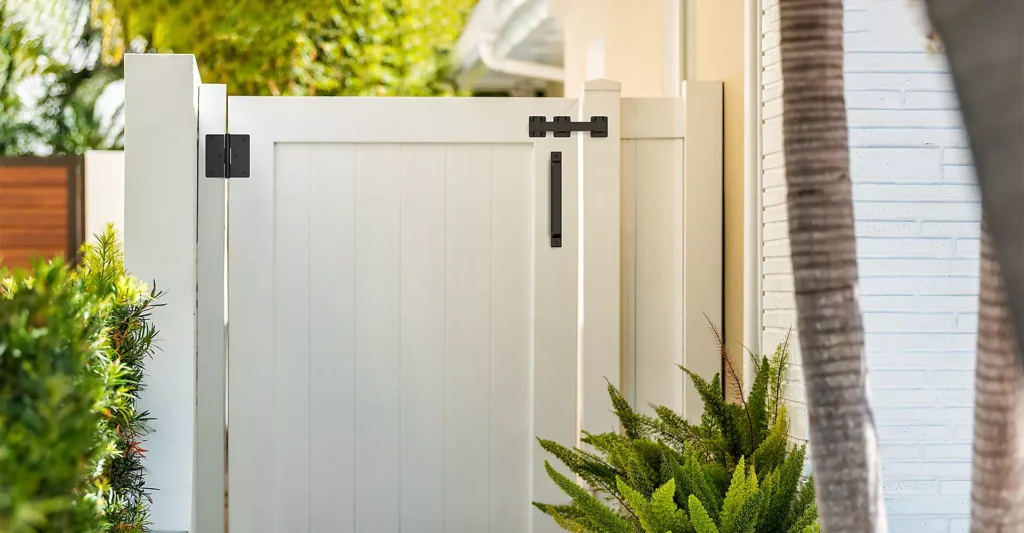Gate hardware is an essential component of any gate, providing both functionality and aesthetics. Whether it’s for a residential property, commercial establishment, or industrial facility, selecting the right gate hardware is crucial for ensuring security, durability, and ease of use. In this article, we’ll delve into the world of gate hardware, exploring the various types available, factors to consider when choosing, installation processes, maintenance tips, common issues, and the benefits of investing in high-quality hardware.
Types of Gate Hardware
Hinges
Hinges are the backbone of any gate, facilitating its movement and allowing for smooth opening and closing. They come in various designs and materials, including stainless steel, brass, and wrought iron. Choosing the right hinges depends on factors such as gate size, weight, and desired aesthetics.
Latches
Latches are essential for securing the gate in a closed position. They range from simple bolt latches to more sophisticated magnetic or electronic locks. The choice of latch depends on the level of security required and the type of gate material.
Handles
Handles provide a convenient grip for opening and closing the gate. Like hinges and latches, they come in a variety of styles and materials, such as lever handles, knob handles, and ring pulls. The selection of handles should complement the overall design of the gate while ensuring ease of use.
Factors to Consider When Choosing Gate Hardware
Material
The material of gate hardware plays a significant role in its durability and resistance to environmental factors. Stainless steel and galvanized steel are popular choices due to their strength and corrosion resistance. However, other materials like brass and bronze offer a more aesthetic appeal but may require more maintenance.
Durability
Gate hardware should withstand frequent usage and exposure to elements like rain, wind, and sunlight. Opting for high-quality, weather-resistant materials ensures longevity and reduces the need for frequent replacements or repairs.
Security
Security is paramount when selecting gate hardware, especially for residential and commercial properties. Choose robust hinges, latches, and locks that provide sufficient strength and tamper resistance to deter intruders.
Installation Process for Gate Hardware
Tools Required
Before starting the installation process, gather the necessary tools, including a drill, screws, screwdriver, level, and measuring tape. Additionally, if the gate is heavy or requires precise alignment, consider enlisting the help of a professional installer.
Step-by-Step Guide
- Begin by determining the placement of hinges, latches, and handles on the gate and adjacent structure.
- Use a measuring tape and level to ensure accurate positioning.
- Pre-drill pilot holes for screws to prevent wood from splitting.
- Attach hinges to the gate frame using sturdy screws, ensuring proper alignment and spacing.
- Install latches and handles according to manufacturer instructions, ensuring smooth operation and secure fastening.
- Test the gate to ensure it opens and closes smoothly without any obstructions or misalignment.
Maintenance Tips for Gate Hardware
Regular maintenance is essential for preserving the functionality and appearance of gate hardware. Here are some tips to keep your hardware in top condition:
- Clean hinges, latches, and handles regularly to remove dirt, debris, and rust.
- Lubricate moving parts with a silicone-based lubricant to prevent friction and corrosion.
- Check for loose screws or bolts and tighten them as needed to maintain structural integrity.
- Inspect hinges and latches for signs of wear or damage and replace them promptly if necessary.
Common Issues with Gate Hardware
Rust and Corrosion
Exposure to moisture and environmental elements can cause gate hardware to rust and corrode over time, compromising its functionality and aesthetics. Regular maintenance and the use of corrosion-resistant materials can help prevent this issue.
Misalignment
Improper installation or frequent usage may lead to misalignment of hinges and latches, resulting in difficulty opening and closing the gate. Adjusting the hardware or seeking professional assistance can resolve this issue.
Loose Components
Vibration, heavy usage, or poor installation can cause screws and bolts to loosen over time, affecting the stability and security of the gate. Regular inspections and tightening of hardware can prevent accidents and ensure smooth operation.
Benefits of High-Quality Gate Hardware
Investing in high-quality gate hardware offers numerous benefits, including:
- Enhanced security and peace of mind.
- Improved durability and longevity.
- Smooth and effortless operation.
- Aesthetic appeal and value addition to the property.
Conclusion
Gate hardware plays a vital role in ensuring the functionality, security, and aesthetics of any gate. By understanding the different types of hardware available, considering factors like material and durability, following proper installation and maintenance procedures, and investing in high-quality products, property owners can enhance the overall appeal and security of their gates.

